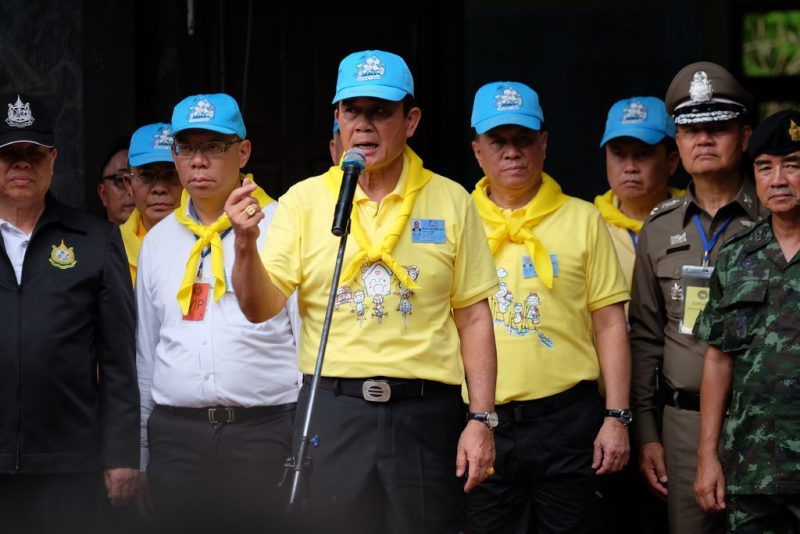
When the last members of a youth soccer team trapped in the Tham Luang Cave in northern Thailand were freed on Tuesday, it wasn’t just they who were rescued. For a moment at least, the ruling junta also seemed to escape from criticism of its authoritarian ways.
The successful operation was a rare chance for Thailand’s military rulers — who have been in power since ousting an elected government in 2014 — to present a softer face, compassionate and efficient. The extraordinary rescue was an antidote to the usual accusations that the junta keeps changing its so-called road map to democracy to delay the next election and displays little consideration for basic freedoms or human rights.
A visit by Prime Minister Prayuth Chan-ocha to Europe last month played out badly for his government. Even as it was celebrating its invitations to Britain and France, the British prime minister, Theresa May, called for “free and open elections” in Thailand, adding pressure to mounting dissatisfaction among Thais.
While Mr. Prayuth, a former general, was away, Time magazine published an article calling him “Little Sarit,” a reference to Gen. Sarit Thanarat, who ruled Thailand with an iron fist from 1957 to 1963. That issue of the magazine did not go on sale in Thailand. The foreign ministry wrote a damning reply, accusing Time of “twisting facts” and “misleading readers.”
The case of the trapped boys and their coach was a welcome diversion to all this: a hair-raising human drama with no government culprit that could unite the country and distract it from politics.
The public-relations opportunity presented by the crisis wasn’t lost on the generals. The government began to rally public support for the rescue operation, calling for volunteers and donations — even asking local farmers to allow their fields to be flooded by water pumped out of Tham Luang Cave. It assigned key officials to follow the situation closely.
Mr. Prayuth visited the cave, by the border with Myanmar, offering encouragement to the rescuers and comfort to the boys’ relatives. “Until they come out,” he said of the team and its coach, “the officers will never abandon them.”
Western governments, including some that have imposed sanctions against the Prayuth administration, sent divers and medical personnel to assist. The Facebook founder Mark Zuckerberg expressed sympathy. The tech billionaire Elon Musk offered to chip in: He visited the cave, bringing a mini-submarine. (It wasn’t used.) The rescue mission transcended political divisions, and for a moment at least, the junta seemed to be above politics as well. For once, it looked like a savior of its people. The death of Saman Kunan, a former Thai Navy SEAL, during the rescue operation even added an aura of sacrifice.
There was a spiritual dimension as well. Tham Luang Cave is a shrine to Jao Mae Nang Non, a mythical princess whose spirit is said to live there. Most Thais are devout Buddhists and believe in supernatural powers, and the people who gathered at the site begged the spirit to release the boys and their coach. The government deftly tapped that sentiment by granting access to the cave to Phra Khuva Boonchum, a revered forest-meditation monk, so that he could perform religious rites for the boys’ well-being.
The monk predicted their return to safety even before they were located, and so when they were finally freed, the government seemed blessed. King Maha Vajiralongkorn played a part as well, offering the monk a set of robes — in effect anointing him with the imprimatur of the monarchy, which is revered in Thailand.
On Wednesday, answering journalists’ questions about a possible Hollywood adaptation of the rescue, Mr. Prayuth said permission would first have to be obtained from his government. The boys and their coach may have been freed, but the rest of country remains trapped by a junta that won’t release its grip on power.
Pavin Chachavalpongpun is an associate professor at Kyoto University’s Center for Southeast Asian Studies.
